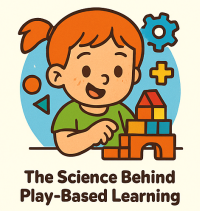The Science Behind Play-Based Learning

Play is more than just fun — it's the foundation of early childhood learning. When children engage in play, they are not just entertaining themselves; they are actively constructing knowledge, practicing new skills, and forming essential brain connections. Play-based learning harnesses the natural curiosity and creativity of children, transforming seemingly simple activities into powerful learning experiences.
Neuroscience research supports the importance of play in early brain development. Through play, children strengthen the connections between neurons in their brain, particularly in areas related to decision-making, emotional regulation, and social behavior. When a child builds a tower with blocks or creates a story with toys, they're not just playing — they're solving problems, predicting outcomes, and exploring cause and effect.
Cognitive development also thrives through play. Children develop memory skills, attention spans, and executive function — all critical for future academic success. Role-playing games, for example, encourage children to switch perspectives, practice language, and navigate social norms. These scenarios, although light-hearted, foster empathy, reasoning, and verbal skills.
Emotional growth is another major benefit. Play allows children to express feelings, cope with emotions, and develop confidence. Whether a child is pretending to be a superhero or caring for a stuffed animal, they're experimenting with different roles and gaining emotional insight. These small moments build resilience and a sense of self-worth.
Importantly, play promotes intrinsic motivation. Children are naturally driven to explore and discover, and when learning is embedded in play, they retain information better and enjoy the process more. This positive association with learning can foster a lifelong love for acquiring knowledge.
Educators and parents can support play-based learning by providing open-ended materials — such as blocks, art supplies, costumes, and natural elements — and by creating safe, stimulating environments. Asking open questions like "What do you think will happen if...?" or "Can you tell me about what you made?" helps deepen the learning without interrupting the child’s flow.
In summary, play is not a break from learning — it is the way young children learn best. By valuing play as an essential educational tool, we empower children to grow intellectually, emotionally, and socially. The classroom, the home, and even the playground can become rich learning landscapes when play is at the heart of the experience.
